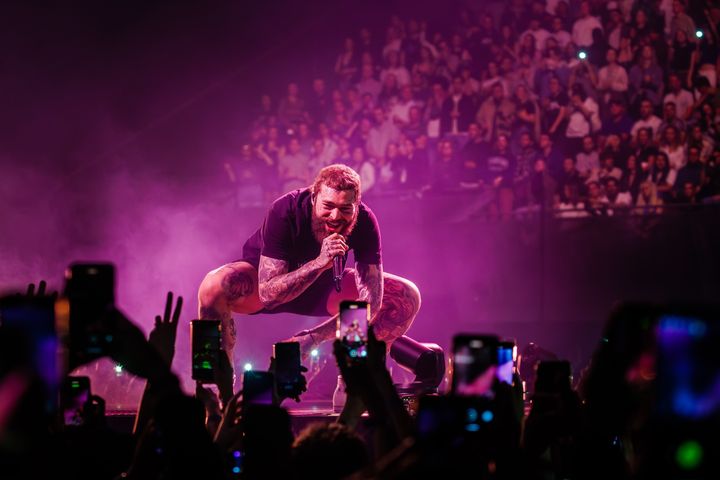
10 much-loved nightclubs that no longer exist in Toronto
Toronto nightclubs come and go with the seasons, and often have even shorter lifespans than our live venues. Still, over the years in Toronto, plenty of debauchery and late night underground beats have long managed to thrive under the surface, if you knew which dark alley to walk down.
Many of these and other culturally significant nightclubs were lovingly documented as part of Denise Benson's Then And Now series.
Here's a look back at some notable Toronto nightclubs that no longer exist.
The Twilight Zone
When it opened in 1980, the Entertainment District didn't exist yet, but the Assoon brothers (David, Albert, Tony and Michael) saw potential in the desolate stretch of empty warehouses to create a serious underground after-hours club in the tradition of NYC's Paradise Garage and the Warehouse in Chicago.
It helped introduce house music to Toronto, but also provided a home for early hip hop, freestyle, new wave, and disco. While it closed in 1989, the Assoon brothers kept up with the nightlife as part of the team at Remix Lounge.
Industry
The Toronto rave scene was just becoming grownup enough to shift from all-ages warehouses to the clubs when Industry opened in 1996 at King and Strachan.
By providing a stable venue and top-notch facilities, it became the place where the underground matured and various post-rave scenes came together, as well as helping establish Toronto as a destination for the world's top international DJs.
While it only lasted four years, it made a major impact, and even helped inspire DJ Sneak to relocate from Chicago to Toronto.
23 Hop
The grimy graffiti-covered warehouse at 318 Richmond was ground zero for Toronto's early rave scene when it opened in 1990. The raw space felt more dangerous than it probably was, and boasted a surprisingly impressive sound system, making it the perfect venue for Exodus Productions to throw the first Toronto raves starting in 1991.
Until it closed in 1995 it hosted a wide variety of underground events, and later became the site of commercial dance club the Joker.
Footwork
After enjoying success throwing parties and booking events at 99 Sudbury, Joel Smye and Stephan Philion decided to take what they'd learned in the warehouse scene and start a legitimate club in 2005.
They took the feel of an after-hours house music party, and applied it to a smaller boutique club space, which was so successful that they eventually outgrew their original space in 2014, and opened Coda instead with almost twice the capacity.
Club Focus
It might sound strange to current day clubbers, but many of Toronto's early underground dance clubs didn't have liquor licenses (Twilight Zone, 23 Hop), which meant that in the case of Focus, the venue catered to an all-ages audience.
While teenage hormones sometimes led to fights, this helped lay the groundwork for a 90s generation of partiers who'd already spent much of their adolescence dancing to 80s new wave, hip hop, house, ska, freestyle and reggae.
RPM
132 Queens Quay East later became the Guvernment but from 1985 to 1995, RPM hosted countless concerts and was also one of the most important dance clubs in town.
The live-to-air broadcasts on CFNY gave kids stuck at home a glimpse of early dance mixed with industrial beats and alternative (not to mention making a superstar out of Chris Sheppard), and all-ages parties let many experience that energy first hand as well.
Roxy Blu
From 1998 to 2005, Roxy Blu provided a home to an eclectic range of organic dance music, from Movement's jazz funk dances to Garage 416's soulful house jams to old school hip hop legends like Afrika Bambaataa.
With the post-rave scene splintering in many directions, Roxy Blu tapped into an audience that was nostalgic for pre-rave house vibes and for dance music that often focused on live instrumentation and that didn't feel like the commercial electronica flooding other clubs.
Circa
This might have been Toronto's last true mega-club. The wildly ambitious project turned out to be ultimately unrealistic, but during its short run from 2007 to 2010, Circa captured the energy of a unique transitional moment in the local scene, when the hipster indie dance scene outgrew the dive bars, but before the EDM explosion took off.
Everyone has a theory of why it didn't survive, but all agree that it was aiming higher than any previous local club has ever attempted.
System Soundbar
Considering that System Soundbar was started by a team whose previous experience was running mainstream clubs, it's impressive how quickly they successfully tapped into the underground after opening in 1999.
Of course it helped that Industry would soon close, leaving many local house heads looking for a new spot, but System also tapped into a larger shift in Toronto nightlife, as the city cracked down on raves, forcing all-night partying into the club scene.
Tazmanian Ballroom
The Tazmanian Ballroom was smaller than most of Toronto's legendary clubs, but it was undisputedly ahead of its time, and would still be considered edgy by today's standards.
Their infamous Rock & Roll Fag Bar night pioneered the idea of running queer nights at straight(ish) club, and the infamous third floor provided a space for onsite sex long before the courts decided such activities were legal.
It was also where future Guvernment resident DJ Mark Oliver would get his start, playing early UK acid house and helping lay the groundwork for the later rave scene.
Latest Videos
Latest Videos
Join the conversation Load comments







